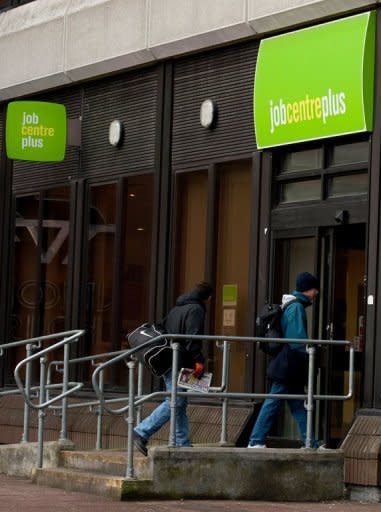ECB set to up the ante
The European Central Bank looks set to dig its heels in this week and refuse any more easy money for governments as the political resolve to rein in deficits shows signs of crumbling, analysts say. The ECB's regular monthly policy-setting meeting -- held in Barcelona on Thursday instead of Frankfurt -- could turn into something of a showdown as patience wears thin over government back-tracking on fiscal consolidation. Since the last meeting in April, there has been a resurgence in the eurozone sovereign debt crisis even as everything suggests that the 17-nation eurozone has fallen into recession. In the face of this, a growing number of governments are beginning to baulk at the belt-tightening measures being prescribed under the recently agreed "fiscal compact," complaining that austerity risks undercutting growth. There have been massive protests in Greece, just bailed out again, as well as in embattled Italy and Spain. In France, leading presidential candidate Francois Hollande has called for a re-negotiation of the fiscal compact to include growth measures. ECB chief Mario Draghi caused a stir last week when he called for a "growth compact" to complement the fiscal compact, with some observers suggesting the central bank could be softening its stance. But an ECB spokesman insisted that Draghi's comments marked no policy change and central bank watchers, alert to every new nuance in "ECB speak," saw it more as an attempt to put the onus back on politicians. Draghi implied as much himself when he said the ECB could only do so much and "the ball is entirely, squarely in the court of governments and banks." "When Draghi advocated a 'growth compact', he was referring to a need for governments to enact structural reforms to improve productivity and competitiveness in the long term," said Jennifer McKeown at Capital Economics. "He has given no indication that the ECB will step in with a short-term boost," the analyst argued. "Indeed, his comments even seem aimed at putting the ball into governments' court again. Not only should they do more to improve their public finances but they should take responsibility for improving the underlying economic outlook." The ECB has been quick to take on a fire-fighting role from the very beginning of the crisis. It quickly reversed last year's rate hikes to bring eurozone borrowing costs back down to an all-time low of 1.0 percent and embarked on a hotly contested programme of buying up the bonds of debt-mired countries so as to ease their borrowing costs. Most recently, in two so-called long-term refinancing operations (LTROs) in December and February, it pumped more than 1.0 trillion euros ($1.3 trillion) into the banking system in a bid to avert a dangerous credit squeeze. At the same time, however, ECB officials have insisted that such measures are only temporary and cannot cure the root cause of the crisis -- profligate spending by governments. RBS economist Nick Matthews suggested that, with the meeting being held in Spain, seen as most at risk of next needing a debt bailout, Draghi could face questions over the possible reactivation of its SMP bond purchase programme to help ease tensions in Spanish bond markets. However, "we continue to believe the ECB will act in a reactive rather than proactive way, with reactivation of the SMP occurring only at a point where the situation has deteriorated significantly and pressure is much greater than that witnessed in recent weeks," Matthews said. The so-called Securities Markets Programme has been controversial from the start, with two prominent German ECB members resigning because they saw it as a way for the central bank to finance governments, something which is banned under ECB statutes. Draghi conceded that the ECB was treading a very fine line with the programme but has insisted it was "neither eternal nor infinite." He has declined to say whether the programme, which has lain dormant for the past five or six weeks, would be re-activated to help Spain. Commerzbank economist Rainer Guntermann believed "ECB support (is) further off than many believe. "Indeed, recent comments from ECB council members further substantiate the notion of no imminent change in the ECB stance," he said. UniCredit analyst Marco Valli agreed. "The ECB is going to stick to its wait-and-see stance. The bar for further ECB intervention -- either conventional or unconventional -- remains high," he said.




